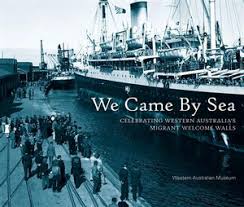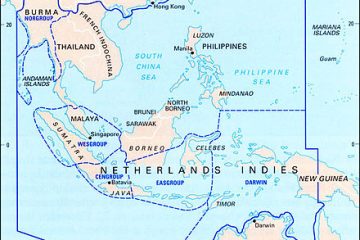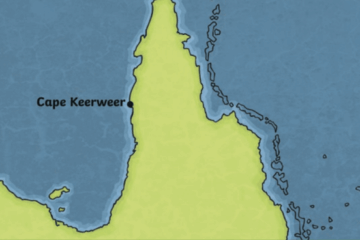The short-lived Allied defence of Ambon in early 1942 is remembered in Australia as one of the most tragic military episodes of the Pacific War. The Battle of Ambon with the near-annihilation of the Australian 2/21st Battalion (‘Gull Force’) and the subsequent Japanese massacre of prisoners at Laha remain seared in the national memory. Less well known, however, is the complex political and strategic context in which the battle occurred—particularly the tensions between Dutch and Australian authorities. Two key studies—Major Rene van den Berg’s Unchained Interests (2021) and Jack Ford’s thesis Allies in a Bind—shed light on the strained wartime cooperation between the Netherlands East Indies (NEI) and Australia and suggest that Dutch parochialism played a role in the failure of the Ambon campaign.
Competing priorities within a crumbling alliance
Both van den Berg and Ford emphasise that the overarching Allied command structure—ABDACOM (American-British-Dutch-Australian Command)—was inherently flawed. As van den Berg notes in his Dutch military staff college monograph, the command suffered from fractured leadership, a lack of shared doctrine, and national interests that rarely aligned. The Dutch, despite providing the territory, much of the infrastructure, and the majority of local forces, were marginalised by British and American planners and were given little real say in the strategic decisions concerning the defence of the NEI.
In response, Dutch military leaders—particularly those in Batavia—developed a cautious and self-protective posture, prioritising the defence of Java over peripheral outposts like Ambon. As van den Berg argues, this defensive attitude was not irrational, but it created blind spots in how the Dutch perceived and engaged with their Australian allies.
Prestige over pragmatism
Ford’s detailed research in Duping the Dutch reveals how these issues played out at the tactical level in Ambon. Despite the Australians contributing the more professional force—including an entire battalion and supporting units—the Dutch insisted that overall command remain in the hands of a KNIL officer, Lieutenant-Colonel J.R.L. Kapitz. Australia agreed, reportedly for “political necessity,” but the outcome was a command structure driven more by symbolism than strategic logic.
The Dutch also demanded that Australian troops bring their own full supply chain and refused to allow them to deploy until Japan had declared war—moves that delayed planning and diminished Allied preparedness. At the same time, Dutch authorities were extremely sensitive to Australian press coverage suggesting that Australian troops were sent to “protect” the NEI. They feared such portrayals would imply Dutch weakness and undermine colonial legitimacy.
This combination of prestige-driven command decisions, delayed cooperation, and concern over appearances points to what can fairly be called a parochial mindset. It did not arise in a vacuum—Dutch officials were operating under intense pressure with limited resources and few reliable allies. But the end result was a fragmented defence that failed to prevent Japanese conquest and came at a terrible human cost.
A sobering reminder of coalition warfare
The loss of Ambon offers a cautionary tale about the challenges of coalition warfare, especially when smaller powers are forced into unequal partnerships. The Dutch government-in-exile was torn between asserting its relevance and accepting a subordinate role. The Australians, while more operationally committed, were also still defining their post-colonial regional identity. As van den Berg notes, ABDACOM was “an unchained alliance” with no shared sense of purpose—bound more by necessity than unity.
The bitter outcome on Ambon was not caused solely by Dutch parochialism, but it was undeniably shaped by it. The events of early 1942 remind us that effective military cooperation requires not just shared objectives but humility, trust, and a willingness to cede status for the sake of common defence.
References:
Van den Berg, R.W.A. (2021). Unchained Interests: American-British-Dutch-Australian Command 1942. Netherlands Staff College Monograph.
Ford, J. Allies in a Bind


